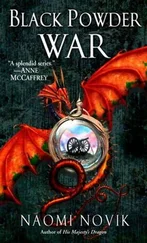Outside, the burst of spring had given way to a thin, cold drizzle. Sharon pulled the belt of her trench coat tight as we stood together on the curb. “Do you ever think about going back?” she said.
“I tried not to think about it at all until you called.” I moved to pull my coat closed, too, but the zipper was jammed. “Do you?”
“I don’t think it’s good idea. For me.” She stuck her arm out to hail a cab. “Looks like the skies are about to open up. You need a ride somewhere?”
I shook my head. Anyway, we were going in opposite directions. A taxi pulled to the curb on the other side of the street. “Guess I’ll take that,” she said. We shared a mannered hug and she ran across the street, still poised in her heels on the slick asphalt. I watched her into the cab, but she was typing something on her BlackBerry and didn’t look up again.
As I walked to the subway my mood blackened, something like anger but about what I couldn’t pinpoint. Frustration, maybe, that I still understood so little. Instead of clarity and insight, adulthood had only brought more confusion. At the next corner I dumped the index cards in the trash.
The city was crowded and wet and grim, with that air of gray desperation it sometimes took on in March. Lunch had gone long and I was going to be late for my appointment with Professor Ariel.
I tried to gauge whether I had enough time to return to my room to retrieve the book he’d loaned me, but decided against it and headed straight for his office.
Reading was one of the only ways in which I allowed myself to think about the continent and country I’d left behind. Though I hadn’t told the professor anything about myself, he seemed to know I was not at home in the world, and so he lent me books — Kundera and Conrad and Levi and a host of other displaced persons. I’d read one and return to his office, where he’d wax eloquent about the authors with such intimate detail I was convinced they were all his close friends. I’d just finished The Emigrants , and though most of the week’s anxieties had been UN-focused, the book hadn’t been much easier on my mind. I’d followed the wandering protagonist — at once forlorn and whimsical — all the while with an uneasy feeling that the professor somehow knew more about me than I cared to reveal.
I ran up the stairs to his office and knocked though the door was half-open. The room was small and warmly lit, with shelves covering nearly every surface. Stacks of overflow books lined the floor. Professor Ariel sat at a desk in the center, looking little and frail amid his collection.
“Come in. Sit down,” he said in his trembly way. “What did you think of the Sebald?” I moved some papers from the chair and put them on his desk. Behind him on the wall a giant poster of Wisława Szymborska, whom he’d also made me read, watched over our meetings like a chain-smoking guardian angel.
“It got to me,” I said.
“Remarkable prose, isn’t it?”
“Yes.” It was true, but that wasn’t the reason. “Not just that, though. The characters. To come face-to-face with people who never recover from their traumas. It was…”
“Disconcerting?”
I nodded.
“And yet Sebald continually points to the imperfections of memory. Not what we usually think of as the ‘searing’ of a certain trauma into one’s mind. That haunting lucidity. What do you make of it?”
That had been what scared me most. What if my memory of my parents’ final moments was all wrong? I felt certain I had kept them fresh and protected inside me. The idea that the whim of the subconscious might corrupt what little I had left of them was too much to accept. “But, maybe it’s not that way for everyone. Maybe some people do remember,” I said.
“Certainly. But that comes with its own problems, no? Consider the character of Ambros Adelwarth.”
“His uncle?”
“Tormented by such clear images of his past—”
“He opts for electroshock therapy. To wipe out the thoughts.”
“Precisely.”
“So what am I supposed — I mean, what are we supposed to take from it?”
“Damned if you do—” He smiled a little, then turned to look out the window. He began talking about Sebald’s recent death, a car crash of questionable explanation, but I was feeling too rattled to respond. “Ana, you all right? You’re looking a bit peaked.” He said my name the Croatian way, not with the long, flat a ’s most Americans used.
“I’m fine. Sorry,” I said. “Just a little under the weather.”
“Sebald has that effect on people. I call it the ‘spell of despair.’ ”
I tried to protest, not wanting him to think I couldn’t manage his assignments, but he turned and stared right at me and I fell silent.
“Where did you say you were from again?”
“I — well. Originally?” I had not said. I didn’t want to say. But it came out anyway. “From Croatia. Zagreb.” A strange, weightless feeling came with having spoken the truth. I gripped the side of the chair as if I really was at risk of floating away.
Professor Ariel did not seem surprised. “Mmm,” he hummed. “I thought so.”
“What?”
“I had an inkling. Not Croatia, exactly. Just from somewhere else. Though the Balkans makes sense.”
“But how could you tell?”
“You have an old soul. I should know — I’ve got one, too. Also, you read too much.” He winked, and I allowed myself a little smile back. “The good news is your friends will catch up.” He swiveled back toward the corner bookshelf. “Now, for next week. Can you handle another Sebald? I’ve got his latest around somewhere…” Slowly he stood and jimmied the book off the shelf with a skeletal finger. “Here it is. Austerlitz .”
“Sorry I didn’t bring the other one back. I came straight from — a meeting.”
“Never mind. You keep it anyway. I’m sure I have another copy.”
He shuffled around his desk and put the book in my lap. “Go on then.”
“Thank you,” I said. But something else had caught his attention and he was far away now, running his fingers along the spine of a book as if it were braille, or the hand of someone he’d long loved, so I closed his heavy office door behind me.
I returned to my dorm, glad to find the hallways quiet and my roommate gone. I should call Brian, I thought, but could not bring myself to do it. Now that I’d told Professor Ariel even just a little about me I felt dangerously open. If I saw Brian I might tell him, too, and I was not ready to deal with the consequences of my deception. Instead I filled my oversize skateboarder’s backpack — remnant of my high school antiestablishment phase — with homework and Sebald and dirty laundry, and left. At Penn Station I bought a dollar bag of oversalted popcorn and climbed aboard the first in a series of commuter trains to Pennsylvania.
—
By the time I boarded the commercial jet in Frankfurt I hadn’t slept in two days and was afraid of nearly everything. I was frightened by the pressure in my ears at takeoff, of catching the sickness of the man who was throwing up into a paper bag across the aisle, of whatever was waiting for me on the other side of the ocean.
When we landed flight attendants took turns reading the airline tag around my neck like I was lost luggage. One grabbed my wrist and dragged me toward customs, where I moved through a series of roped-off queues and signed my name to a form I couldn’t read. An announcement over the intercom caught her attention, and she stared at the wall clock and tapped her foot. A man with too many badges rifled through my passport, eyeing my makeshift visa with its crooked staple. Behind him I watched suitcases wind around a black track. The officer asked me a question that, from what I could understand, was about whether I’d recently been on a farm. I looked at his badges and shook my head.
Читать дальше












